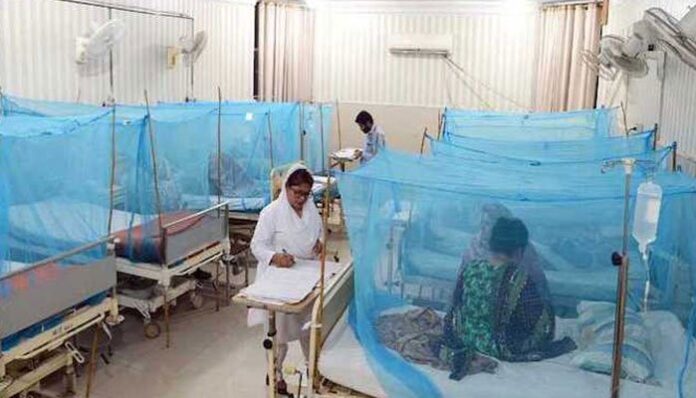Dengue Threat Persists Despite Cooler Weather
Despite the seasonal shift and cooler temperatures, Rawalpindi continues to battle a rising wave of dengue infections. In the past 24 hours alone, 23 new cases have been reported, underscoring the city’s ongoing struggle to contain the mosquito-borne virus.
According to the District Health Authority (DHA) Rawalpindi, a total of 16,345 dengue tests have been conducted since the start of the year. Out of these, 1,072 individuals have tested positive for the virus. Currently, 41 patients are receiving treatment at various hospitals in the city. Encouragingly, no fatalities have been reported so far this year.
Massive Surveillance and Control Efforts
Health officials have launched an extensive surveillance campaign to curb the outbreak. During the ongoing drive, teams inspected more than 5.78 million households, discovering dengue larvae in around 182,769 homes. In addition, 1.61 million public and private sites were spot-checked, with 25,079 locations found to contain mosquito breeding sites.
Authorities confirmed that larvae were destroyed at 207,848 locations during the clean-up operations. These measures are part of a citywide effort to eliminate stagnant water — the primary breeding ground for Aedes aegypti mosquitoes, which transmit the dengue virus.
Legal Action Against SOP Violations
Officials have also intensified legal action against those violating anti-dengue standard operating procedures (SOPs). So far, the district administration has registered 4,581 First Information Reports (FIRs), sealed 1,862 premises, and issued 3,550 challans. Fines amounting to 10.5 million rupees (approx. USD 37,000) have been imposed on violators.
Authorities have urged citizens to cooperate by keeping their homes and surroundings clean and ensuring that containers do not collect stagnant water.
A Persistent Urban Health Challenge
Experts warn that urban density, poor drainage systems, and irregular waste management continue to fuel the spread of dengue in Rawalpindi and other parts of Pakistan. Despite ongoing government campaigns, dengue remains a recurring seasonal health concern.
The World Health Organization (WHO) has noted a significant rise in dengue cases across South Asia in recent years, with Pakistan among the most affected countries. Health authorities in Rawalpindi emphasize that community participation is vital to control the outbreak and prevent further infections as the city braces for fluctuating weather in the weeks ahead.















